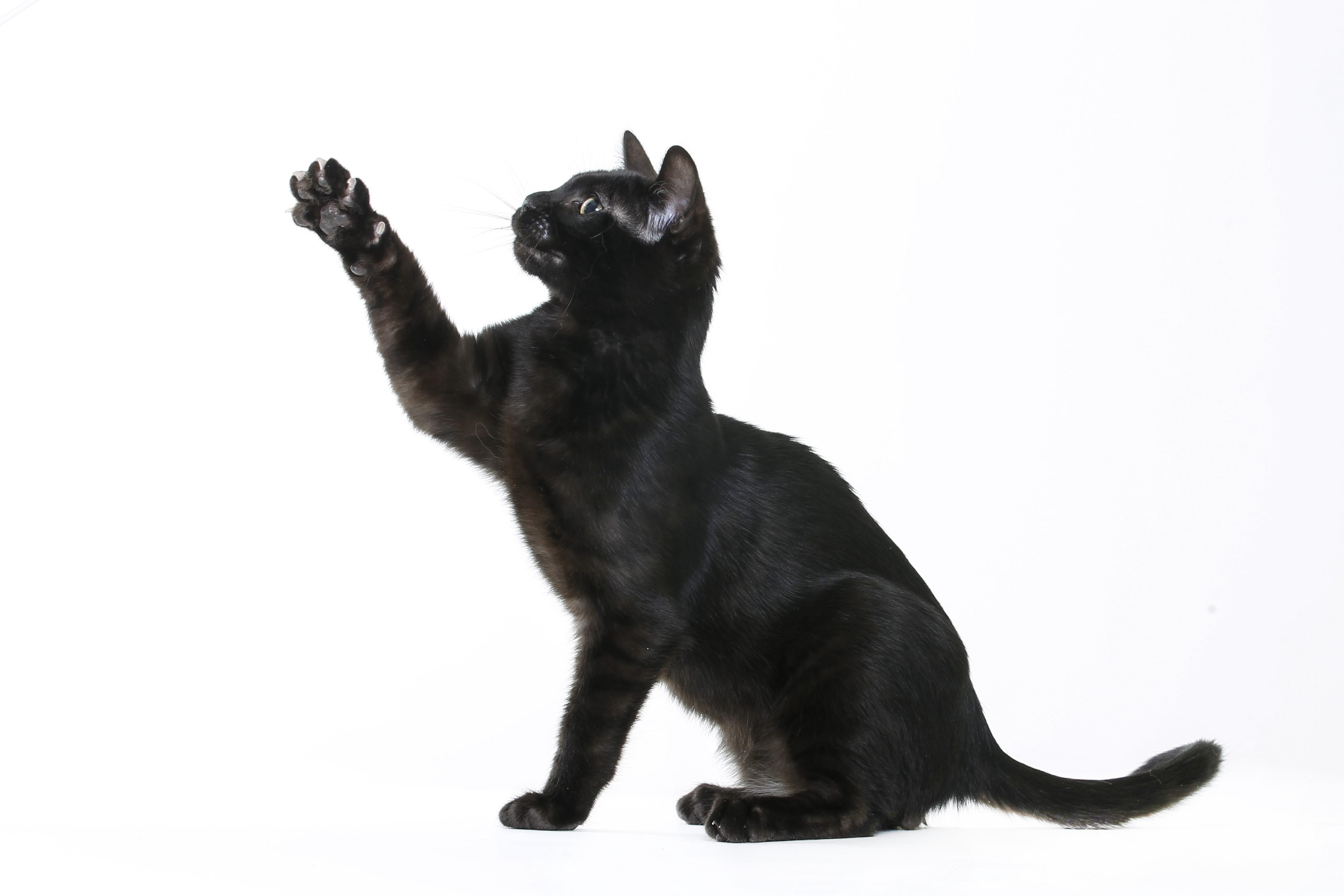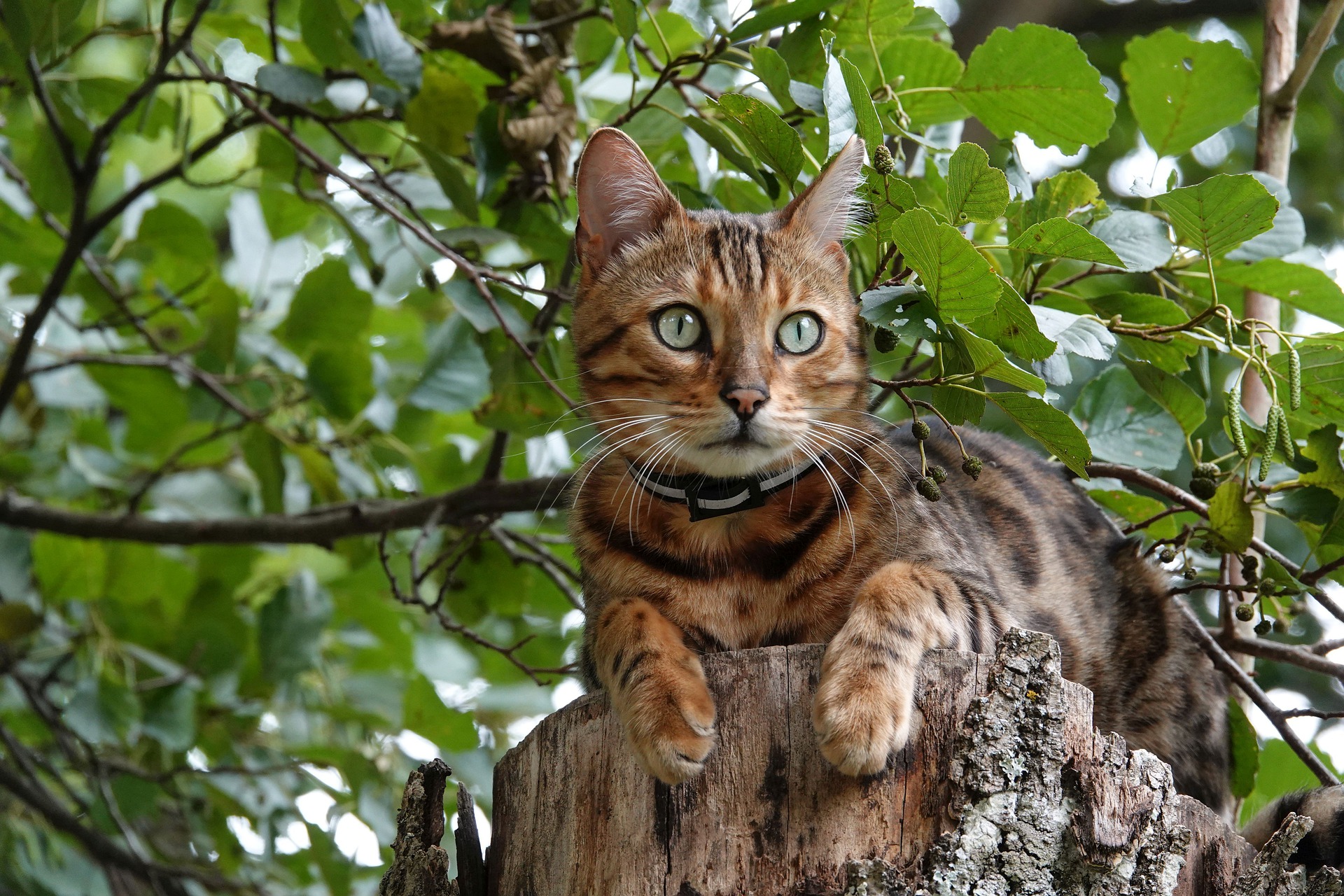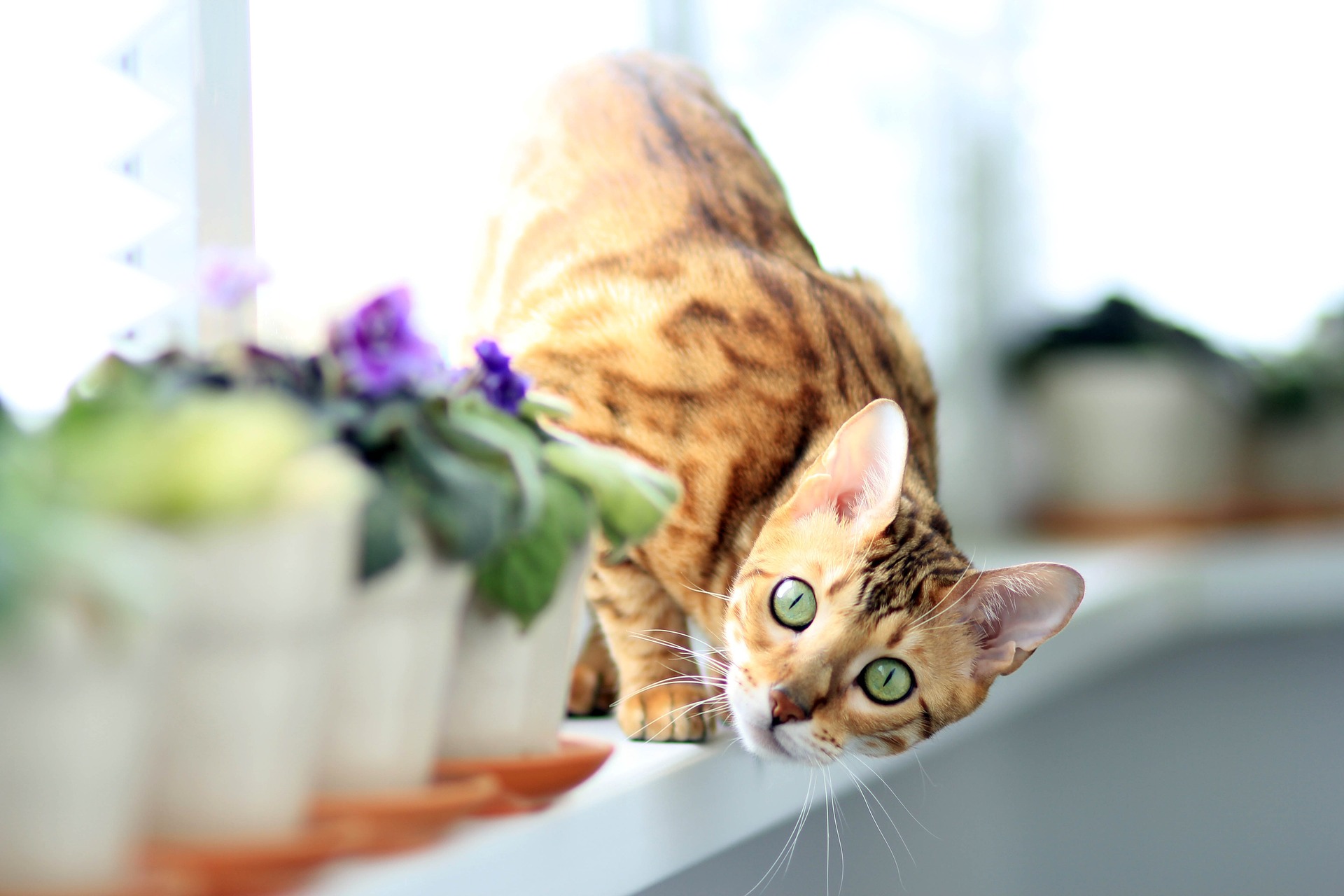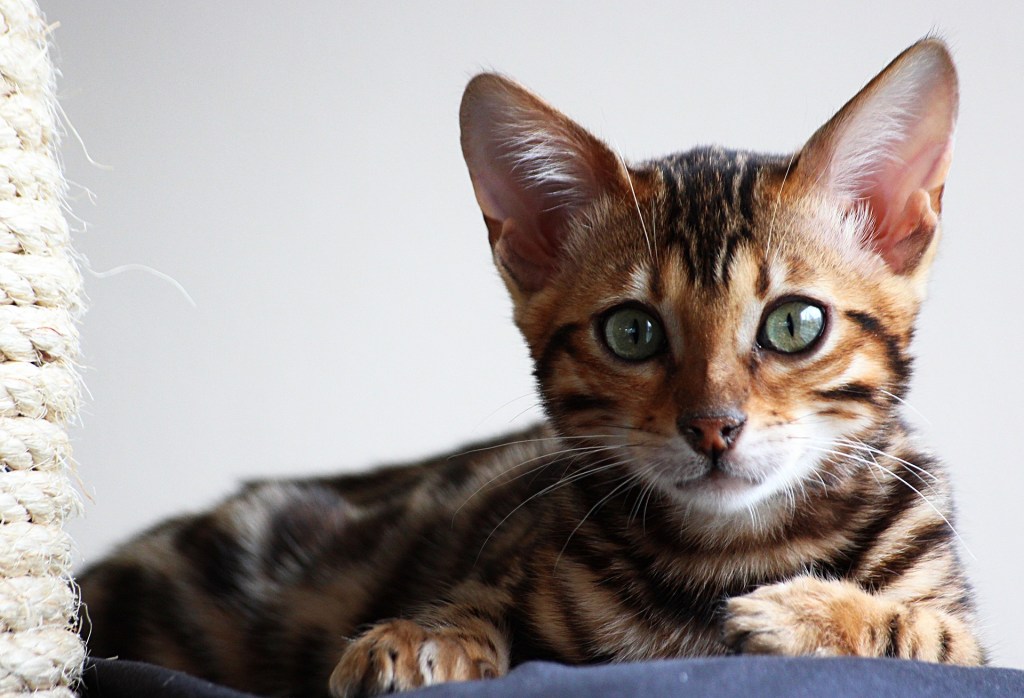Imagine having a miniature panther living in your house. That’s basically what you get with a black Bengal. With their striking coat patterns and exotic look, Bengals are truly stunning cats. But the black Bengal sports an even more incredible coat.
If you have your heart set on one of these black cats, it’s important to understand what makes them unique and what you might expect when you add one to your home. Bengals can be great pets, but they definitely aren’t for every family. More energetic and with more specialized needs than your traditional house cat, Bengals require some specific care. But if you get it right, they can be rewarding pets.

What’s so special about a Bengal cat?
According to The Bengal Connection, Bengal cats are distinctive and unique felines. Known for their striking coat patterns, Bengals are also highly curious and very vocal. These cats always have something to say — and they will say it loudly.
These kitties are also highly intelligent, likely because they’re descendants of the Asian leopard cat. They’re quite sensitive to emotions and are social. Bengals are also playful and have a strong hunting drive. It seems like these cats are always looking for entertainment.

How rare is a black Bengal cat?
Black Bengal cats are particularly rare but they can be born in a litter with other colors. According to the Bengal Cats Cattery, black Bengals have six fascinating characteristics:
- Black Bengals aren’t approved by cat breed associations, so these fascinating and beautiful cats are fairly uncommon.
- They have a black pattern on a solid base coat color, and in the sun, you can see these “ghost markings.”
- These cats resemble a black panther, which also has this distinctive coat pattern that looks solid black at a glance.
- Black Bengal’s spots can be a dark brown to black, and sometimes appear to completely blend with the base coat.
- The black color is caused by melanism, which is a genetic mutation that results in extra pigmentation that causes the black color.
- This magnificent creature will set you back around $2,000 to $4,000, and they tend to cost more than other Bengal coat colors because they are rare.

Are Bengal cross cats good pets?
According to Spot Pet Insurance, Bengal cats have many traits that make them desirable pets, including their intelligence, athleticism, and loyalty. These cats tend to be friendly and can bond well with other pets and their human family when properly socialized. Keep in mind that Bengals are highly active, and they require more time and attention than other cat breeds. A Bengal crossed with a more sedentary, traditional cat breed might be the perfect pet, but it’s always important to consider each individual cat’s characteristics when deciding if they’re right for your family.

Do Bengal cats like to be held?
While Bengals are highly social and affectionate, they won’t necessarily be happy when you try to pick them up and hold them. These cats generally don’t like to sit in laps or be held, and they’ll tend to squirm against any sort of restriction. Bengals are high-energy cats who are also independent, so restricting your cat can make them uncomfortable.
Instead, find ways to bond with your Bengal, so that they stay comfortable and confident. You might play with them, pat them, or just spend quality time with them. It’s important to honor the fact that your Bengal is a self-reliant cat who doesn’t want to be restrained by your picking him up.
It can take a while to fully understand your Bengal, and this breed isn’t for everyone. Because of their high energy levels, Bengals need plenty of care and interaction, and their vocal nature means you’ll hear about it if your kitty is unhappy. But in the right home of pet parents who understand the breed and who are prepared to give these cats the care they need, Bengals can be wonderful pets who reward their humans with loyalty and affection. As with any cat breed, do your homework before deciding to bring home a Bengal. Take your time in deciding which breed is right for you so you can be sure you make the best choice for the cat and your family.


